#12 May 1780
Photo
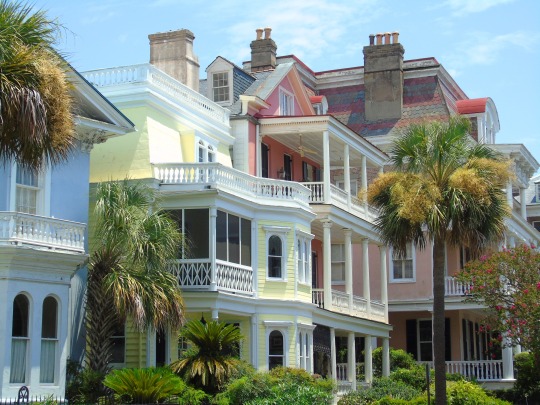

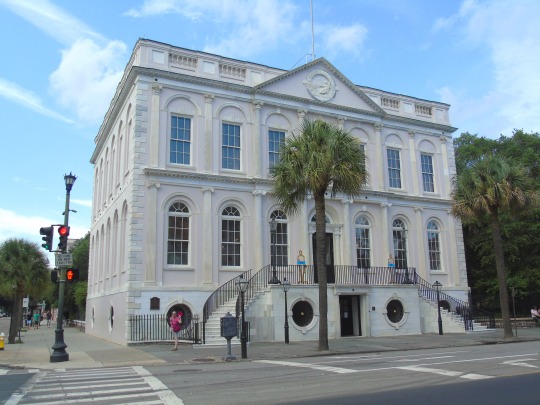

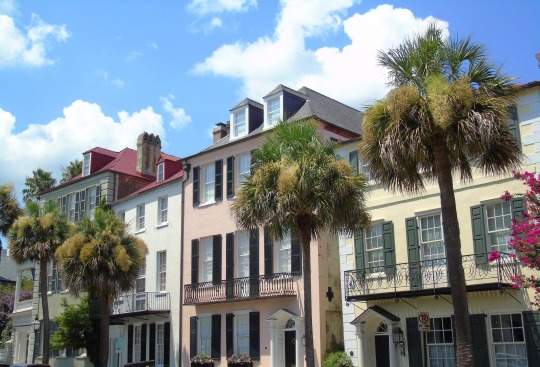

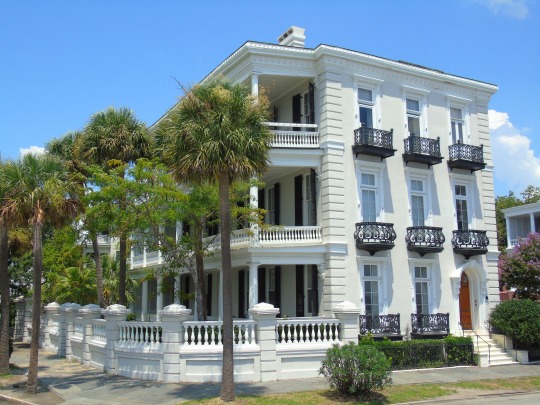


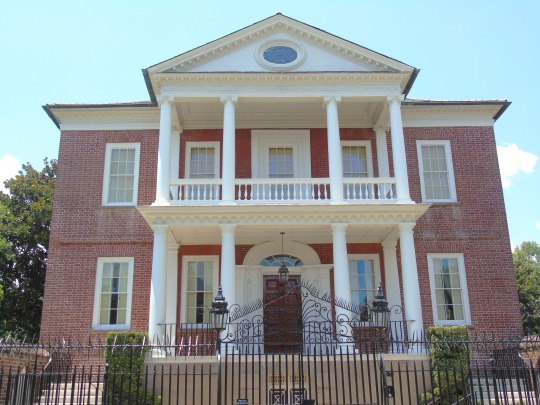
American Revolutionary War: In the largest defeat of the Continental Army, Charleston was taken by British forces on May 12, 1780.
#American Revolutionary War#American War of Independence#Charleston#captured#12 May 1780#anniversary#US history#City Hall#architecture#cityscape#original photography#summer 2016#tourist attraction#vacation#St. Philips Church Episcopal West Cemetery#South Carolina#Louis DeSaussure House#Miles Brewton House#Cathedral of St John the Baptist#Unitarian Church#St. Philip's Episcopal Church
4 notes
·
View notes
Text
Black History Milestones: Timeline | HISTORY
We here realize that this isn't our normal content. We believe that slavery in ANY form is wrong. Slavery is still going on today all over the world. And if we can shine even the smallest light, we shall.
https://www.history.com/topics/black-history/black-history-milestones
Author’s Note: We here realize that this isn’t our normal content. We believe that slavery in ANY form is wrong. Slavery is still going on today all over the world. And if we can shine even the smallest light, we shall.
View On WordPress
#1 December 1955#1 January 1863#12 June 1967#13 November 1956#13th Amendment#1400s#14th Amendment#15 April 1947#16 October 1859#1619#17 May 1954#1780s#1791#1793#17th century#1808#1820#1831#1860#1861#1862#1865#1866#1870#1877#1885#1896#18th century#1900#190318 May 1896
0 notes
Text

She is a bit shy in door 8 today, but a very pretty French girl - L'Hermione
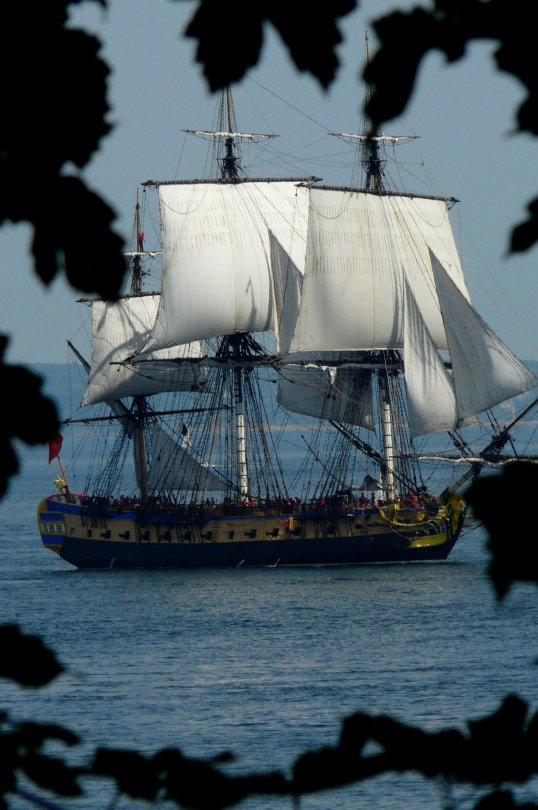
Départ de La frégate Hermione Lafayette du port de Brest, Fort du Dellec, 2019
More about her here:
Hermione is the name of the French frigate with which the Marquis de La Fayette returned to Boston in 1780 to support the American colonists in their fight for independence. The ship was completed in 1779 in the naval arsenal of Rochefort in a construction period of just eleven months, based on plans by Henri Chevillard and identical in construction to three other ships (la Courageuse, la Concorde, la Fée). These new light frigates were characterised by their manoeuvrability and speed. The Hermione was equipped with 26 cannons that could fire projectiles weighing 12 French pounds "poid de marc" (489.5 g). This is where the name "twelve-gun frigate" comes from. She also carried six or eight six-pounder guns. The empty weight was 1166 tonnes, the hull length 44.2 m, the overall length 65 m, the width 11.55 m and the depth 5.78 m. A sail area of more than 1500 m² was spread over three masts.
She experienced several battles and when the First Coalition War broke out on 20 April 1792, the Hermione returned to active service under Captain Martin. From 7 May 1793, she escorted convoys between Bayonne and Brest. In September 1793, she was tasked with escorting a convoy between the Loire estuary and the streets of Brest. On 20 September 1793, she ran aground off Le Croisic. The Hermione had a serious leak in the hull and could not be refloated in the receding tide. The crew threw 12 cannons and anchors overboard to stabilise the ship. The rising sea lifted the Hermione for a while, but she was so damaged that she could no longer pump water and sank to the bottom, where her hull began to disintegrate. At 1000 hours the next morning, Martin evacuated his crew in several fishing boats that had come to the rescue, salvaging as much equipment as possible, and was the last to leave the frigate.
The court martial that followed the wreck found the frigate's pilot, Guillaume Guillemin du Conquet, responsible for the frigate's loss; its commander, Captain Martin, was honourably acquitted.
A replica of the frigate has been under construction in a dry dock at the former Rochefort naval arsenal since 1997. As the original construction plans had been burnt for safety reasons, new plans had to be drawn up. The plans of a sister ship from the British Naval Museum, the Concorde, served as a model. The reconstruction of the Hermione was financed in part by the proceeds from the survey, grants from the French government and the EU as well as donations.
After its completion, the Hermione was launched in 2014. She left her building dock in early September 2014 for initial sea trials off the French Atlantic coast and sailed to North America in 2015, where she stayed for four months before sailing back. From 2 February 2018, the Hermione undertook a second major sea voyage from Rochefort to the Mediterranean via Tangier, Sète, Marseille and Toulon.
182 notes
·
View notes
Photo

Siege of Charleston
The Siege of Charleston (29 March to 12 May 1780) was a major military operation during the American Revolutionary War (1775-1783). Hoping to establish a foothold in the American South, British commander-in-chief Sir Henry Clinton led an attack on Charleston, South Carolina, capturing the city after a six-week siege. It was one of the worst American defeats of the war.
Continue reading...
21 notes
·
View notes
Text
24 Days of La Fayette – Day 24
After hopelessly falling behind schedule (and honestly, whom was I kidding?) let us have a look at one of La Fayette’s most iconic portraits – the painting showing him in his continental army uniform done by Charles Wilson Peale.

The was commissioned by George Washington and cost 20 Guineas. It is commonly dated to 1779 but Peale used to date his paintings when he started working on them and not when he finished it. And La Fayette’s portrait had to hit a few stops before being finished. Peale wrote to Washington on July 21, 1780:
Dr Genl
nothing but dire necessity would have compel’d me to have called on you for any money until the end of the War. but you will allow me to relate to you my situation, as it will be my best appolegy.
The House I live in being unexpectedly Sold, I am warned to leave it in a very short time, being unable to get any place to Rent in which I could follow my profession. I have been under the necessity of entering into an Engagement for the purchase of a House. and have promised a payment by the first of next month, in confidence that I shall get it from 3 or 4 Gentlemen for whom, I have done some Bussiness. The portrait of the Marquis is thought very like. yet I hope to emprove it when the Marquis will favor me with another sitting—The other parts of the picture, I will finish with great care without loss of time. I am Dr Genl with great respect you most obedient Humble Servant
Cha. Peale
The Coppy of your portrait in Miniature five Guineas.
The half length of the Marquis de la Fayette. twenty Guineas.
“To George Washington from Charles Willson Peale, 21 July 1780,” Founders Online, National Archives, https://founders.archives.gov/documents/Washington/03-27-02-0193. [Original source: The Papers of George Washington, Revolutionary War Series, vol. 27, 5 July–27 August 1780, ed. Benjamin L. Huggins. Charlottesville: University of Virginia Press, 2019, p. 233.] (12/24/2023)
Some time later, on December 12, 1780, Washington wrote to Peale, inquiring after the portrait:
Dr Sir,
I perswade my self you will embrace the oppertunity of the Marquis la Fayette’s visit to Philadelphia to give the picture of him the finishing touches. You may not have another oppertunity and I wish for its completion. I am Dr Sir Yr Obedt Servt
Go: Washington
P.S. as I presume you must be done with my picture of the King of Prussia ’ere this I should be glad to have it returned to me.
“From George Washington to Charles Willson Peale, 12 December 1780,” Founders Online, National Archives, https://founders.archives.gov/documents/Washington/03-29-02-0321. [Original source: The Papers of George Washington, Revolutionary War Series, vol. 29, 28 October–31 December 1780, ed. William M. Ferraro. Charlottesville: University of Virginia Press, 2021, pp. 487–489.] (12/24/2023)
Peale replied promptly on December 18, 1780:
I expect that the Marquis will give me a setting tomorrow, I waited on him in the beginning of last Week and found that he was engaged with the other foreugn Officers in taking a View of the several Grounds of battles and Encamptments. My intention is to give you the most compleat portrait I am Capable of painting.
Notes from “From George Washington to Charles Willson Peale, 12 December 1780,” Founders Online, National Archives, https://founders.archives.gov/documents/Washington/03-29-02-0321. [Original source: The Papers of George Washington, Revolutionary War Series, vol. 29, 28 October–31 December 1780, ed. William M. Ferraro. Charlottesville: University of Virginia Press, 2021, pp. 487–489.] (12/24/2023)
The last letter regarding this portrait was written by Peale and addressed to Martha Washington on January 16, 1781:
I should be glad to be informed whether the portrait of the King of Prussia has yet reached head quarters: please to acquaint his Excellency that his picture of the Marquis is much aprroved off altho’ not entirely finished, for I have thought proper to ma[k]e an entire change of the back ground.
Notes from “From George Washington to Charles Willson Peale, 12 December 1780,” Founders Online, National Archives, https://founders.archives.gov/documents/Washington/03-29-02-0321. [Original source: The Papers of George Washington, Revolutionary War Series, vol. 29, 28 October–31 December 1780, ed. William M. Ferraro. Charlottesville: University of Virginia Press, 2021, pp. 487–489.] (12/24/2023)
It is not known when Peale finally completed the portrait.
There are often some comments that this was not Peale’s peak performance, but something is remarkable about this painting – it does not sugarcoat anything. Many paintings of La Fayette show a very idealised version of him. Peale on the other hand shows us a young, slightly fleshy, red-faced General with a receding hairline.
The portrait was and still is fairly well-known and popular. Washington had it displayed in Mount Vernon’s Front Parlor. It was later moved to a guest room, commonly referred to the “Lafayette room” – the room the Marquis occupied when visiting the Washington’s in 1784. It’s former place in the Front Parlor was then occupied by a large painting of the whole La Fayette-family. It was later given to the Washington and Lee University. The spot in the “Lafayette-room” is now filled with a high-quality reproduction.
Merry Christmas Everybody!
#24 days of lafayette#art#marquis de lafayette#la fayette#french history#american history#american revolution#history#letter#charles wilson peale#george washington#martha washington#1779#1780#1781#mount vernon#founders online
20 notes
·
View notes
Text
Napoleonic birthday calendar
A quick first attempt at a combined calender; I hope I have not accidentally dropped somebody on the way [searches floor]. Whom or what else should we add? I’ve already taken the liberty to add Junot and Duroc.
And just for the record: All the work was done by @northernmariette, I’m just posting on her behalf due to technical problems.
January
3 Jan 1777: Elisa Bonaparte-Baciocchi
7 Jan 1768: Joseph Bonaparte
🎖 10 Jan 1769: Marshal Ney
🎖 26 Jan 1763: Marshal Bernadotte
February
🎖 13 Feb 1768: Marshal Mortier
March
🎖 2 Mar 1770: Marshal Suchet
🎖 13 Mar 1763: Marshal Brune
20 Mar 1822: Napoléon II,
25 Mar 1782: Caroline Bonaparte-Murat
🎖 25 Mar 1767: Marshal Murat
27 Mar 1746: Charles (Carlo) Bonaparte
🎖 29 Mar 1769: Marshal Soult
April
10 Apr 1783: Hortense de Beauharnais-Bonaparte
🎖 10 Apr 1769: Marshal Lannes
🎖 13 Apr 1764: Marshal Gouvion Saint-Cyr
🎖 25 Apr 1767: Marshal Oudinot
🎖 29 Apr 1762: Marshal Jourdan
May
🎖 6 May 1758: Marshal Masséna
🎖 7 May 1763: Marshal Poniatowsky
🎖 10 May 1770: Marshal Davout
21 May 1775: Lucien Bonaparte
🎖 28 May 1735: Marshal Kellerman
🎖 31 May 1754: Marshal Pérignon
June
23 June 1763: Joséphine Bonaparte
July
🎖 20 Jul 1774: Marshal Marmont
🎖 31 Jul 1754: Marshal Moncey
August
🎖 6 Aug 1768: Marshal Bessières
15 Aug 1769: Napoléon Bonaparte
24 Aug 1750: Laetitia Ramolino-Bonaparte
September
2 Sept 1778: Louis Bonaparte
3 Sept 1781: Eugène de Beauharnais
24 Sept 1771: Junot
October
20 Oct 1780: Pauline Bonaparte
🎖 21 Oct 1759: Marshal Augereau
🎖 23 Oct 1766: Marshal Grouchy
🎖 25 Oct 1755: Marshal Lefebvre
25 Oct 1772: Duroc
November
15 Nov 1784: Jérôme Bonaparte
🎖 17 Nov 1765: Marshal Macdonald
🎖 20 Nov 1753: Marshal Berthier
December
🎖 7 Dec 1764: Marshal Victor
🎖 8 Dec 1742: Marshal Serurier
12 Dec 1791: Marie-Louise Bonaparte
31 notes
·
View notes
Text
Who is the worst founding father?
Round 4: Thomas Jefferson vs John Jay vs Edmund Randolph

Thomas Jefferson (April 13, 1743 – July 4, 1826) was an American statesman, diplomat, lawyer, architect, philosopher, and Founding Father who served as the third president of the United States from 1801 to 1809. Jefferson was the primary author of the Declaration of Independence. Following the American Revolutionary War and prior to becoming the nation’s third president in 1801, Jefferson was the first United States secretary of state under George Washington and then the nation’s second vice president under John Adams.
Starting in 1803, he promoted a western expansionist policy with the Louisiana Purchase and began the process of Indian tribal removal from the newly acquired territory.
In confidential talks with French consul Joseph Létombe, Jefferson attacked President John Adams and predicted [he] would serve only one term, encouraged France to invade England, and advised Létombe to stall any American envoys sent to Paris by instructing him to “listen to them and then drag out the negotiations at length and mollify them by the urbanity of the proceedings." This toughened the tone that the French government adopted toward the Adams administration.
Jefferson lived in a planter economy largely dependent upon slavery, and used slave labor for his household, plantation, and workshops. Over his lifetime he owned about 600 slaves.
During his presidency, Jefferson allowed the diffusion of slavery into the Louisiana Territory hoping to prevent slave uprisings in Virginia and to prevent South Carolina secession. In 1804, in a compromise on the slavery issue, Jefferson and Congress banned domestic slave trafficking for one year into the Louisiana Territory.
In 1819, Jefferson strongly opposed a Missouri statehood application amendment that banned domestic slave importation and freed slaves at the age of 25 on grounds it would destroy the union.
Jefferson never freed most of his slaves, and he remained silent on the issue while he was president.
Since the 1790s, Jefferson was rumored to have had children by his sister-in-law and slave Sally Hemings, known as the Jefferson-Hemings controversy. According to scholarly consensus…as well as oral history, Jefferson probably fathered at least six children with Hemings.
---
John Jay (December 12, 1745 – May 17, 1829) was an American statesman, patriot, diplomat, abolitionist, signatory of the Treaty of Paris, and a Founding Father of the United States. He served as the second governor of New York and the first chief justice of the United States. He directed U.S. foreign policy for much of the 1780s and was an important leader of the Federalist Party after the ratification of the United States Constitution in 1788.
Jay served as the governor of New York from 1795 to 1801. Although he successfully passed gradual emancipation legislation as governor of the state, he owned five slaves as late as 1800. In the waning days of President John Adams’ administration, Jay was confirmed by the Senate for another term as chief justice, but he declined the position and retired to his farm in Westchester County, New York.
John Jay himself purchased, owned, rented out and manumitted at least 17 slaves during his lifetime. He is not known to have owned or invested in any slave ships. In 1783, one of Jay’s slaves, a woman named Abigail, attempted to escape in Paris, but was found, imprisoned, and died soon after the illness. Jay was irritated by her escape attempt, suggesting that she be left in prison for some time. To his biographer Walter Stahr, this reaction indicates that “however much [Jay] disliked slavery in the abstract, he could not understand why one of his slaves would run away.”
---
Edmund Jennings Randolph (August 10, 1753 – September 12, 1813) was a Founding Father of the United States, attorney, and the 7th Governor of Virginia. As a delegate from Virginia, he attended the Constitutional Convention and helped to create the national constitution while serving on its Committee of Detail. He was appointed the first United States Attorney General by George Washington and subsequently served as the second Secretary of State during the Washington administration.
A scandal involving an intercepted French message led to Randolph’s resignation as Secretary of State in August 1795. Randolph had been tasked with maintaining friendly relations with France. The British Navy had intercepted correspondence from the French minister Joseph Fauchet to his superiors and turned it over to Washington, who was dismayed that the letters reflected contempt for the United States and that Randolph had been primarily responsible. The letters implied that Randolph had exposed the inner debates in the cabinet to France and had told it that the administration was hostile to the country. At the very least, Elkins and McKitrick conclude, there “was something here profoundly disreputable to the government’s good faith and character.”
While residing in Pennsylvania, the 6-month residency deadline for [his slaves] approached. Attorney General Edmund Randolph’s slaves had obtained their freedom under the 1780 law, and Randolph was advising Washington (through Lear’s letters) on how to prevent the eight [slaves] from similarly obtaining theirs.
#founding father bracket#worst founding father#founding fathers#amrev#brackets#polls#thomas jefferson#john jay#edmund randolph
21 notes
·
View notes
Note
I know there’s a strong possibility that Laurens’ death may have been suicide but what about Ham’s? There is speculation that Ham’s death may have been suicide, especially since he has a history of feeling suicidal. I could be wrong though. I’m curious of your take.
Not likely. While depression and depressive thoughts did plague Hamilton throughout his life, he was only “suicidal” during his years of early/mid adulthood. Or at least that we know of, it is heavily likely Hamilton may have still had such thoughts later in life especially with all that he went through — but there's no indication of such, especially in regards to the duel.
Hamilton did seem to be going through a depressive phase throughout 1780, where he implies suicide twice, as he writes to confine in Laurens and Elizabeth;
“The truth is I am an unlucky honest man, that speak my sentiments to all and with emphasis. I say this to you because you know it and will not charge me with vanity. I hate Congress—I hate the army—I hate the world—I hate myself. The whole is a mass of fools and knaves; I could almost except you and Meade.”
(source — Alexander Hamilton to John Laurens, [September 12, 1780])
“I am chagrined and unhappy but I submit. In short Laurens I am disgusted with every thing in this world but yourself and very few more honest fellows and I have no other wish than as soon as possible to make a brilliant exit. ’Tis a weakness; but I feel I am not fit for this terrestreal Country”
(source — Alexander Hamilton to John Laurens, [January 8, 1780])
“What have we to do with any thing but love? Go the world as it will, in each others arms we cannot but be happy. If America were lost we should be happy in some other clime more favourable to human rights. What think you of Geneva as a retreat? ’Tis a charming place; where nature and society are in their greatest perfection. I was once determined to let my existence and American liberty end together. My Betsey has given me a motive to outlive my pride, I had almost said my honor; but America must not be witness to my disgrace. As it is always well to be prepared for the worst, I talk to you in this strain; not that I think it probable we shall fail in the contest; for notwithstanding all our perplexities, I think the chances are without comparison in our favour; and that my Aquileia and I will plant our turnips in her native land.”
(source — Alexander Hamilton to Elizabeth Schuyler, [September 6, 1780])
But after that he barely wrote like such again, and I don't think it ever reached to the same severity after that. After Philip's death, Hamilton found solace in religion, and the church. As it seemed to comfort the thought of death that he would one day reunite with all his loved ones in the afterlife. But in extension, he became a more pious person, and was more outspoken against dueling and the morals of it.
Hamilton even went as far as to write a whole statement of his reasoning before the duel because he was very reluctant to attend but found that he had to;
“1 My religious and moral principles are strongly opposed to the practice of Duelling, and it would even give me pain to be obliged to shed the blood of a fellow creature in a private combat forbidden by the laws.
2 My wife and Children are extremely dear to me, and my life is of the utmost importance to them, in various views.
3 I feel a sense of obligation towards my creditors; who in case of accident to me, by the forced sale of my property, may be in some degree sufferers. I did not think my self at liberty, as a man of probity, lightly to expose them to this hazard.
4 I am conscious of no ill-will to Col Burr, distinct from political opposition, which, as I trust, has proceeded from pure and upright motives.”
(source — Statement on Impending Duel with Aaron Burr, [28 June–10 July 1804])
He continues;
“To those, who with me abhorring the practice of Duelling may think that I ought on no account to have added to the number of bad examples—I answer that my relative situation, as well in public as private aspects, enforcing all the considerations which constitute what men of the world denominate honor, impressed on me (as I thought) a peculiar necessity not to decline the call. The ability to be in future useful, whether in resisting mischief or effecting good, in those crises of our public affairs, which seem likely to happen, would probably be inseparable from a conformity with public prejudice in this particular.”
Hamilton's consideration was prioritized for future matters, as he refused to decline the challenge because he was worried of being deemed a coward, and thus when a crisis or his public assistance would be needed, the country would refuse him due to his tainted name. Hamilton also had an appointment with Dirck Ten Broeck scheduled, where he was expecting to go over a legal case at his office later in morning on the day of the duel. Hamilton would not care for any of this if his intent was truly not to survive.
In fact, Hamilton was more prepared to die for other duels he partook in; he even had a will prepared during his confrontation with duel James Nicholson in 1795 after they went through a squabble. Five days later after he finalized that he would meet Nicholson in the field, Hamilton wrote a lengthy letter of instructions to Robert Troup;
“Confiding in your integrity and friendship to me, I have made you Executor of my Will. My concerns are not very extensive and of course will not give you much trouble. Indeed I might have dispensed with the ceremony of making a Will as to what I may myself leave had I not wished that my little property may be applied as readily and as fairly as may be to the benefit of my few Creditors. For after a life of labour, I leave my family to the benevolence of others, if my course shall happen to be terminated here.”
(source — Alexander Hamilton to Robert Troup, [July 25, 1795])
Of course though, he survived. Hamilton had been involved in several other duels prior to the one with Burr - none ever even actually occurred on the field, which was a case for many challenges back then - it is important to note that a majority of duels back then didn't even end in death. For instance, Burr had once dueled Hamilton's brother-in-law, John Barker Church, and the two didn't suffer from any injuries or death. I also don't even think Hamilton thought Burr would shoot him, and gave serious thought to what he would do if Burr insisted on exchanging more than one round of fire.
I also don't think he was that insensitive about how his death would affect his family, most importantly. After watching Angelica's mental well-being distort after Philip's death, and how Elizabeth would struggle terribly without his support — he would have obviously known what that would do for them all, and they seemed to be his highest concern from the minute he was shot to the last hour on his deathbed.
#tw: suicide#amrev#american history#alexander hamilton#historical alexander hamilton#aaron burr#the duel#history#queries#sincerely anonymous#cicero's history lessons
23 notes
·
View notes
Text
Playtime
Playtime
https://ift.tt/uQJBCYE
by Bunnybunkins
Basically Hermione and Draco have a dance. Then go to her hotel room for a fuck.
Warning light choking.
Words: 1780, Chapters: 1/1, Language: English
Fandoms: Harry Potter - J. K. Rowling
Rating: Explicit
Warnings: No Archive Warnings Apply
Categories: F/M
Characters: Draco Malfoy, Hermione Granger
Relationships: Hermione Granger/Draco Malfoy
Additional Tags: Hermione Granger/Draco Malfoy Smut, Infidelity, Vaginal Sex, Vaginal Fingering, Oral Sex, One Night Stands, Roughness, Choking, Kink Discovery, Dancing, Hotel Sex, Cunnilingus, Cock Worship, Deepthroating
via AO3 works tagged 'Hermione Granger/Draco Malfoy' https://ift.tt/EmQrYxs
May 12, 2023 at 09:53PM
2 notes
·
View notes
Text
youtube
Eugène Walckiers - Deuxième trio pour la flûte, clarinette et basson Op 12 1er movement
Andante con molto - Allegro molto (1er movement).
Pablo Sosa del Rosario - Flute, 8 keys: A. Grenser, ca. 1790 Dresden, Germany. Copy made by Martin Wenner, Singen.
Alejandro Fariña Martín - Clarinet in B flat, 12 keys: A. Grenser, ca. 1780 Nuremberg, Germany. Copy made by Rudolf Tutz, Innsbruck.
Hugo Rodríguez Arteaga - Bassoon, 8 keys: H. Grenser, ca. 1800, Dresden, Germany. Copy made by Pau Orriols, Barcelona.
Recorded at the Barth Kapel, Den Haag. 7th May 2020.
2 notes
·
View notes
Photo
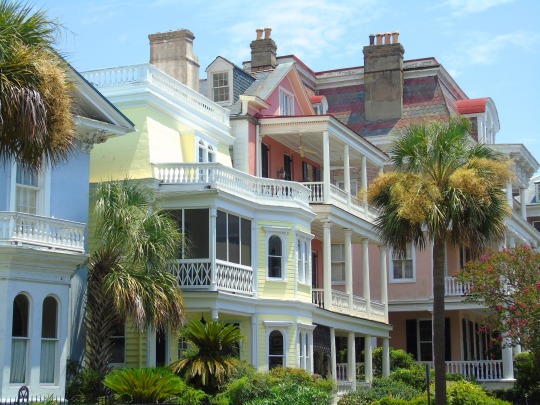
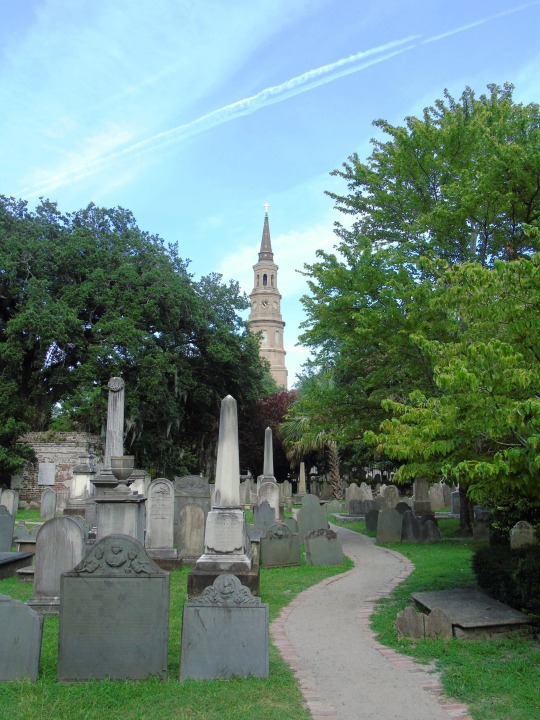


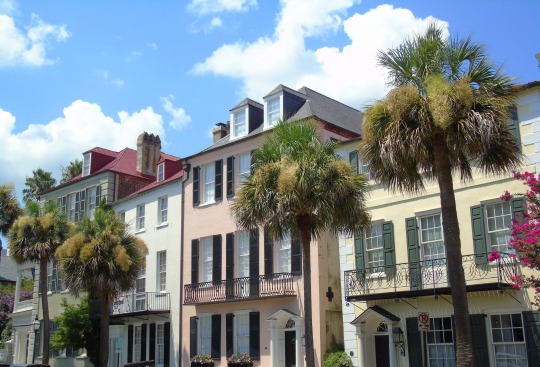
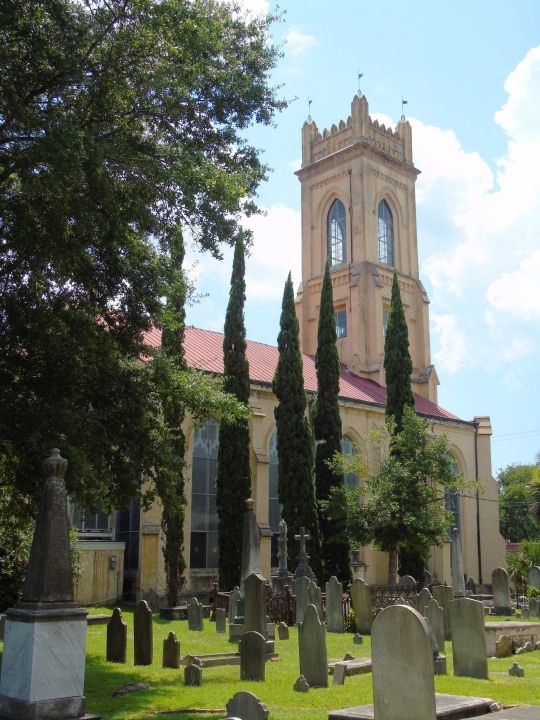
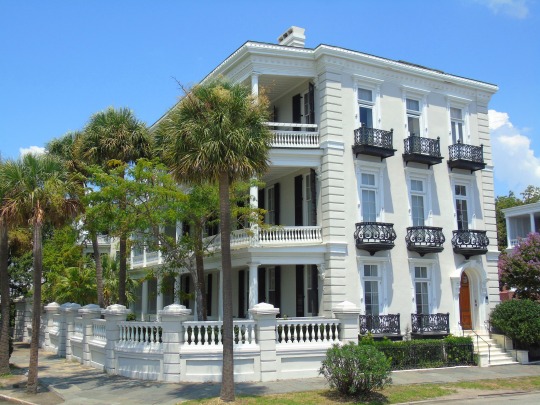
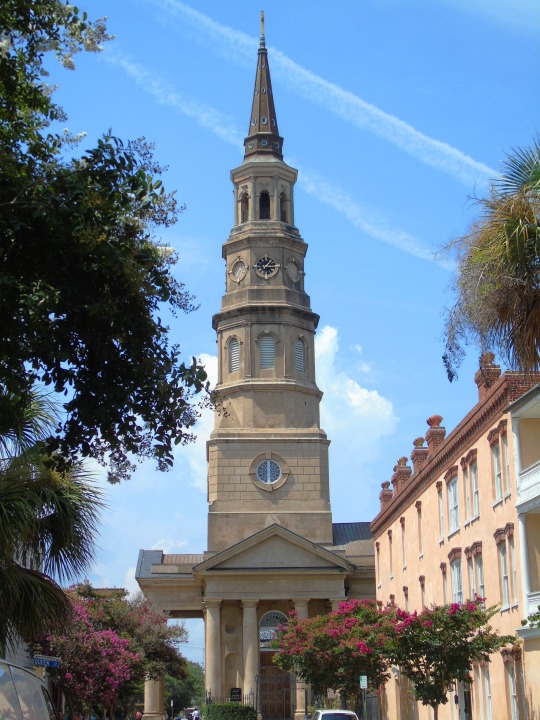
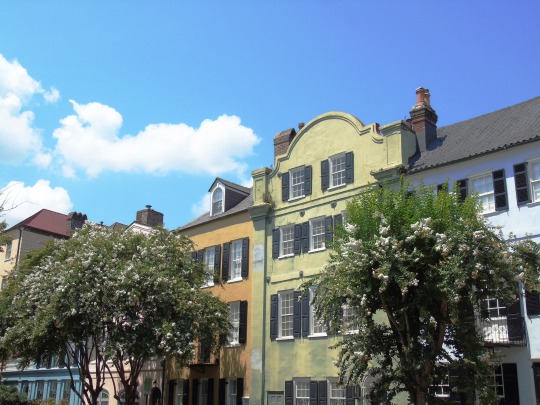

American Revolutionary War: In the largest defeat of the Continental Army, Charleston was taken by British forces on May 12, 1780.
#St. Philips Church Episcopal West Cemetery#city hall#Cathedral of St John the Baptist#Unitarian Church#Louis DeSaussure House#St. Philip's Episcopal Church#Miles Brewton House#American Revolutionary War#American War of Independence#Charleston#taken#British forces#12 May 1780#anniversary#US history#architecture#cityscape#travel#vacation#summer 2016#original photography#tourist attraction#landmark#USA#South Carolina#Southeastern Region
0 notes
Text

I posted 7,110 times in 2022
2,043 posts created (29%)
5,067 posts reblogged (71%)
Blogs I reblogged the most:
@greatcomets
@dogdayafternoon1975
@milfygerard
@essexdogs
@bulletsgirl
I tagged 3,973 of my posts in 2022
Only 44% of my posts had no tags
#mcr - 680 posts
#oscars 22 - 199 posts
#succession - 105 posts
#gerard - 78 posts
#goncharov - 65 posts
#kaitlin - 62 posts
#art - 56 posts
#miller - 41 posts
#saw - 34 posts
#spotify - 30 posts
Longest Tag: 103 characters
#💖💛💗💓💓❤️🔥❤️🔥❤️🔥💓💓💖❤️💛💘💕💚💕💕💕🧡💖❤️💖🖤🤍🤍💚💕💚💕💕❤️💘💘🧡💖🤎💖🤍💗❤️💓❤️💗🧡💕💕
My Top Posts in 2022:
#5

7,243 notes - Posted May 12, 2022
#4
(gripping the sink) vienna waits for me
7,573 notes - Posted August 15, 2022
#3
ariel (mermaid) when her dad asks her who she was with last night

8,396 notes - Posted September 11, 2022
#2


rip to the funniest guy on the planet
18,254 notes - Posted May 26, 2022
My #1 post of 2022
"everyone is beautiful and no one is horny" really truly changed the game. the closest to a household name a media essay can get. people were discussing it irl like it was 1780 and a hot new pamphlet had just dropped
19,575 notes - Posted June 28, 2022
Get your Tumblr 2022 Year in Review →
#tumblr2022#year in review#my 2022 tumblr year in review#your tumblr year in review#sigh here it is. im always rbing myself
3 notes
·
View notes
Text
Don’t you just love attempting to work on your outline for your historical fiction novel and you find yourself hours later with too many tabs of your main character’s papers open?
Yeah that was me for the last two days. But wow did I find and re-read some fun stuff.

Every now and then as I draft Volume I of this Hamilton trilogy, The American Icarus (whose title has a fun story that I might go into if anyone’s interested), I like to review my current outline in making sure plotlines are solid both for this book, and for Volume II and III, as some of them bleed into the rest of the trilogy (Alexander’s economic studies, his relationship with Elizabeth Schuyler, such with John Laurens, and his feelings towards the Continental Congress for instance).
Upon reviewing TAIVI’s outline again, I realized a few of these weren’t fleshed out (given time to grow and develop) very well. Really, it felt like they were crammed there. Originally I had planned to just add one new chapter, but no I added ten 😂
Nonetheless, I set to work digging through Hamilton’s papers again 😂 Here’s some of the gems I found or got to re-read for your enjoyment:
Indeed, my Dear friend, to drop allegory, you can hardly conceive in how dreadful a situation we are. The army, in the course of the present month, has received only four or five days rations of meal, and we really know not of any adequate relief in future. This distress at such a stage of the campaign sours the soldiery. "Tis in vain you make apologies to them. The officers are out of humour, and the worst of evils seems to be coming upon us-a loss of our virtue. "Tis in vain you attempt to appease; you are almost detested as an accomplice with the administration. I am losing character my friend, because I am not over complaisant to the spirit of clamour, so that I am in a fair way to be out with every body. With one set, I am considered as a friend to military pretensions however exorbitant, with another as a man, who secured by my situation from sharing the distress of the army, am inclined to treat it lightly. The truth is I am an unlucky honest man, that speak my sentiments to all and with emphasis. I say this to you because you know it and will not charge me with vanity. I hate Congress-I hate the army-I hate the world-I hate myself.The whole is a mass of fools and knaves; I could almost except you and Meade.
From Hamilton To John Laurens, Sept 12, 1780
This letter always makes me want to give Hamilton a hug.
Adieu, be happy, and let friendship between us be more than a name.
From Hamilton to John Laurens, Sept 16, 1780
Aww.
It is now a week my Betsey since I have heard from you. In that time I have written you twice. I think it will be adviseable in future to number our letters, for I have reason to suspect they do not all meet with fair play. This is number one.
From Hamilton to Elizabeth Schuyler, August 1780
This always makes me laugh out loud every time I come across it. He essentially told her “hey here’s my new filing system!”
I have received a letter from my Laurens solicitg an interview on the Pensylvania Boundary. The General has half consented to its taking place. I hope to be permitted to meet him; if so, I will go to Philadelphia and then you may depend, I shall not forget the picture you requested.
From Hamilton to Elizabeth Schuyler, [2-4, July, 1780]
This grabbed my attention for a couple reasons, but the biggest one is, did he ever get permission to meet Laurens? We don’t know.
Despite the fact that I ended up making this book longer than I’d planned, I did have fun re-reading and finding some of this for the first time. How does your outline process work? Anything exciting? The effort here wouldn’t tell you that my outline is literally just a bunch of bullet points 😂
#amwriting#alexander hamilton#historical research#writers on tumblr#historical fiction#writing community#works in progress#writblr#writer things#writerslife#historical writers#novel wip#writerscommunity#writerscorner#amrev#american revolution#outlining#authors#the american icarus trilogy
2 notes
·
View notes
Photo

Battle of Camden
The Battle of Camden (16 August 1780) was a major battle of the southern theater of the American Revolutionary War (1775-1783). It saw a British army under Lord Charles Cornwallis decisively defeat an American force under General Horatio Gates, thereby securing British control of South Carolina and allowing Cornwallis to invade North Carolina.
Background: Fall of Charleston
On 29 March 1780, over 12,000 British and German soldiers under the command of Sir Henry Clinton dug in outside the landward walls of Charleston, South Carolina, and began to lay siege. Over the course of the next six weeks, the British siegeworks crept closer to the city walls, as the ubiquitous roar of artillery echoed in the sky. Charleston was, at the time, the largest and most important city in the American South. Its capture would provide the British with a base from which to launch an invasion of the South, one of the most economically significant regions of the United States. The exports of southern cash crops such as indigo, rice, and tobacco were used to fund the American war effort; should the South fall back under British control, the US would lose access to this major source of revenue and would be less capable of military upkeep. The amputation of the South from the body of the United States would, it was believed, be the fatal blow to the young republic.
This was a fact that Major General Benjamin Lincoln, commander of the Southern Department of the Continental Army, knew all too well. As the British completed their entrapment of his army in Charleston, Lincoln knew that time was running out for both his army and the South, and he could only hope that help was on its way. General George Washington, commander-in-chief of the American forces, was unable to come to Lincoln's aid himself, as he was currently in New Jersey with the main army keeping an eye on the sizable British force in New York City. However, Washington was able to spare two regiments of Continentals (or regular soldiers), sending them south under the capable command of Major General Johann de Kalb. Simultaneously, the 380 troops of the 3rd Virginia Regiment under Colonel Abraham Buford crossed into South Carolina, intent on coming to Charleston's defense.
But before either of these detachments could arrive to reinforce the city, Lincoln's hand was forced. By early May, Clinton's siegeworks had approached the city walls, allowing the British to unleash an artillery barrage that engulfed the wooden buildings of Charleston in flames. Unwilling to subject his army and the city's residents to further carnage, Lincoln surrendered on 12 May; at least 2,500 Continentals were taken prisoner (the British reported over 5,000 prisoners), and Charleston was occupied by the British. Clinton then set about pacifying the state of South Carolina, offering pardons to any Patriot militiamen willing to change sides and fight for the British; as a result, the British were able to recruit nearly 4,000 men for their Loyalist militias over the summer.
Clinton also dispatched Lt. Colonel Banastre Tarleton, and his infamous unit of elite Loyalists known as the British Legion, in pursuit of Colonel Buford's Virginians. On 29 May, Tarleton attacked Buford at the Battle of Waxhaws on the border between North and South Carolina. The battle quickly devolved into a bloodbath, as Tarleton's troops allegedly massacred the Continental soldiers while they were trying to surrender; this led the Patriots to coin the phrase ‘Tarleton's Quarter' to refer to the brutality of British officers. With the elimination of Buford's regiment, the last remnants of the American southern army had been destroyed, leaving the South open to British subjugation.
Satisfied with this outcome, Clinton returned to New York City in early June, leaving his second-in-command, Lord Charles Cornwallis, in charge of finishing the pacification of South Carolina. This was easier said than done, as the brutality of Waxhaws inspired hundreds of men to join Patriot militias that were sprouting up across the South Carolina backcountry. Men like Thomas Sumter, Francis Marion, and Andrew Pickens led small bands of partisan fighters on attacks against British and Loyalist troops, frustrating Cornwallis' attempts to solidify his authority in the region. As the weeks wore on and Cornwallis' grip on South Carolina began to slip, the Patriots spotted a chance to regain control of the state. But to do so, they would have to rebuild their southern army fast.
Continue reading...
19 notes
·
View notes
Text
24 Days of La Fayette - December 24th: Doctor James McHenry
I hope that everybody who celebrates Christmas has a most happy and blessed day!
There were no posts these last few days because life simply got in the way. But they will follow in a few days. :-)
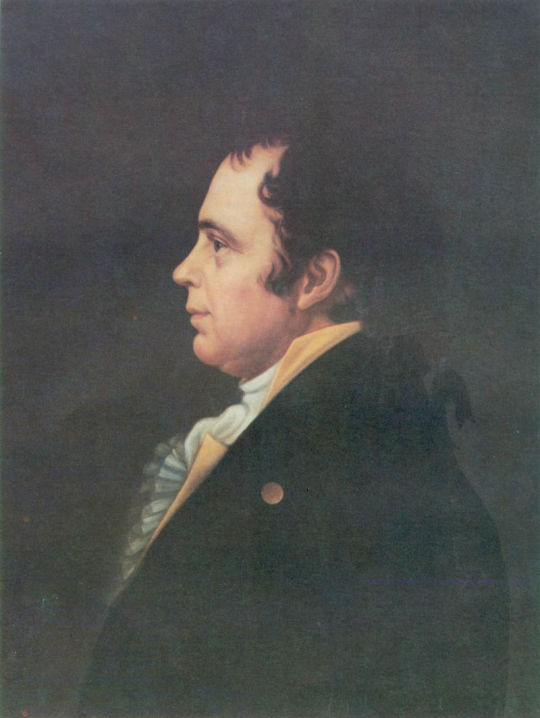
On this last day we focus on the most famous (and probably the most beloved by the modern audience) aide-de-camp of La Fayette – Doctor James McHenry. I purposely kept the part about his life before and after his tenure as aide-de-camp to La Fayette brief. Not because there is not enough information, quite the contrary – McHenry was very involved in the politics and social life of the young Republic, and one could fill volumes with his life and actions.
He was born on November 16, 1753 in Dublin and was educated there before emigrating to Philadelphia in 1771. After a short pause, he continued to study medicine under Doctor Benjamin Rush, one of the signers of the Declaration of Independence. He joined the war effort out of patriotism for his new home and worked at the American Continental Hospital in the fall of 1775 before being appointed surgeon for the 5th Pennsylvania Regiment on August 10, 1776. He was captured during the assault on Fort Washington on November 16 of the same year and spend his time treating fellow prisoners of war. McHenry was part of a prisoner exchange in March of 1778, and he returned to the army and served as a surgeon during the encampment in Valley Forge. In May of 1778 he accepted George Washington’s offer to become one of his assistant secretaries. Two years later, in 1780, McHenry was yearning for a change.
James McHenry wrote to George Washington on July 18, 1780:
I would beg leave to mention to your Excellency, a matter, in which I feel too much to be longer without laying it before you. The approaching campaign opening an interesting field, makes me desirous to appear, in a more military character, than that I now hold. I have also had before me for some time past, a prospect of visiting Europe; and especially those places where our interest is most cherished: And as my present character, of secretary, is not in the same estimation, there, as with us, I would therefore request your Excellency, that I may be considered as a volunteer. Hitherto, I have acted without pay, and it is my intention to receive none in future, unless some alteration in my circumstances render it necessary. If I receive your permission, to come as a volunteer, or accept such a station in the army as may place me, wholly, in a military light, I shall be happy, because, in it, I combine, with what I owe myself, that duty proper to my country.
“To George Washington from James McHenry, 18 July 1780,” Founders Online, National Archives, [Original source: The Papers of George Washington, Revolutionary War Series, vol. 27, 5 July–27 August 1780, ed. Benjamin L. Huggins. Charlottesville: University of Virginia Press, 2019, pp. 175–176.] (12/21/2022)
In alignment with McHenry’s remarks that he desired a more “hands-on” position in the army and desired to be employed in a military position, he transferred to La Fayette’s staff in August of 1780 and became the Marquis’s voluntary aide-de-camp. While an aide-de-camp was still a far cry from a field-command, the position was more military than the position of a secretary.
Alexander Hamilton wrote to James Duane on July 22, 1780:
I take the liberty my Dear Sir to request your interest for a friend of mine and a member of the family, Dr McHenry. He wishes to quit a Station which among foreigners is not viewed in a very reputable light and to get into one more military. He will go into the Marquis’s family as an aide. He has been in the army since the commencement of the War—first in the medical line, since the 15th of May 78, as a Secretary to the Commander in Chief. You know him to be a man of Sense and merit. A more intimate acquaintance with him makes me hold him as such in an eminent degree. He has now no military existence properly speaking—no rank. I believe he is not immoderate.
“From Alexander Hamilton to James Duane, [22 July 1780],” Founders Online, National Archives, [Original source: The Papers of Alexander Hamilton, vol. 2, 1779–1781, ed. Harold C. Syrett. New York: Columbia University Press, 1961, pp. 363–364.] (12/21/2022)
In his new position, McHenry was a direct witness to one if not the greatest scandal during the American Revolution – McHenry was at the breakfast table with Benedict Arnold when Arnold received the letter informing him of John André capture. La Fayette wrote to the Chevalier de La Luzerne on septembre 26, 1780:
When we left Fishkill yesterday we were preceded by one of my aides-de-camp and the aide of General Knox, who found General and Mrs. Arnold at table and joined them for breakfast. While they were there, two letters were brought to General Arnold informing him of the capture of a spy. He ordered a horse to be saddled, then went upstairs to his wife to tell her he was ruined, and commanded his aide-de-camp to tell General Washington that he was going to West Point and would return within an hour.
Idzerda Stanley J. et al., editors, Lafayette in the Age of the American Revolution: Selected Letters and Papers, 1776–1790, Volume 3, April 27, 1780–March 29, 1781, Cornell University Press, 1980, pp. 179-180.
It was around the same time that McHenry set out to secure a fixed rank for himself, since under La Fayette he was only employed as a volunteer. He benefited in his endeavor from the help of his former fellow staff-member, Alexander Hamilton. Philip Schuyler wrote to Alexander Hamilton, his future son-in-law, on September 16, 1780:
I have communed with the Governer on the Subject of McHenrys wish; he is very much disposed to use his Influence on the occasion but doubts if he should be able to obtain a lieutenancy unless the Ensigns that now are could all be provided for. If McHenry merely wants military rank for the campaign and will not accept of an Ensigncy, The Governor can and will give him a Lieut Colonelcy in the State levies, which will always give him rank in our militia and Consequently in the army when the militia is in the field; but this must be determined before the legislature rises; please therefore to desire McHenry to write me on the Subject without delay, and to assure him of my best services in my power.
“To Alexander Hamilton from Philip Schuyler, 16 September 1780,” Founders Online, National Archives, [Original source: The Papers of Alexander Hamilton, vol. 2, 1779–1781, ed. Harold C. Syrett. New York: Columbia University Press, 1961, pp. 432–434.] (12/21/2022)
Congress eventually granted James McHenry the rank of Major (although not everybody was exactly happy with this agreement) in April of 1780. General Greene had spoken out in McHenry’s favour and had possible tipped the scale in McHenry’s favour.
Report
9th and 10th That Tench Tilghman Esq: receive the Commission of Lieut. Colonel to take Rank from and Doctor McHenry the Commission of Major to take Rank from.
Remarks
9th—and 10th—Mr Tilghmans Commission to be dated the 1st of april 1777. Mr McHenrys from the time at which Genl Greene applied in his favr—(last Octobr).
“Report and Remarks, 3 April 1781,” Founders Online, National Archives, [This is an Early Access document from The Papers of George Washington. It is not an authoritative final version.] (12/21/2022)
In the General Orders for June 5, 1781 we can read the following:
That Doctor James McHenry receive the Commission of Major in the Army of the United States to take rank from the 30th of October last.
“General Orders, 5 June 1781,” Founders Online, National Archives, [This is an Early Access document from The Papers of George Washington. It is not an authoritative final version.] (12/21/2022)
General Greene was an important proponent of McHenry’s and wrote to George Washington on May 3, 1781:
When I was appointed to the command of this army, I solicited Congress to give Doctor McHenry a majority that he might serve me in the character of an aid. This they refused. I was perswaded when I made the application of the necessity, and since have felt it, most sensibly. Your Excellency can scarsely tell how happy you are in your family and therefore can hardly judge of my situation. I cannot make a second application to Congress upon this subject, nor should I have hopes of succeeding if did, but I shall esteem it a peculiar mark of your Excellency[s] friendship and esteem if you will interest yourself in the matter and get him a Majority.
“To George Washington from Nathanael Greene, 1 May 1781,” Founders Online, National Archives, [This is an Early Access document from The Papers of George Washington. It is not an authoritative final version.] (12/21/2022)
Washington had been aware of Congress initial refusal and was quite angry at the time. He had written to Joseph Jones on January 27, 1781:
I was concerned when I came to Congress to hear so small a favor was refused Genl Greene then going to his new Command as that of granting his request respecting Dr McHenry—from my conversation with Gentlemen on the subject many think the Genl shod have been indulged and if it [can] be done the question will probably be revived This however the Dr shod not be acquainted with least the attempt shod be unsuccessfull.
“To George Washington from Joseph Jones, 27 February 1781,” Founders Online, National Archives, [This is an Early Access document from The Papers of George Washington. It is not an authoritative final version.] (12/21/2022)
Although this affair left some aftertaste, life went on with McHenry as a Major under La Fayette – who was very warmly attached to McHenry. La Fayette wrote on February 15, 1781:
Every Body Says You Are Going to Get Into the Governor's Council. If You Quit the House for the field, I shall Be Very Happy to obtain the Preference in Your Military Employements, and Hoping You know My tender friendship and affectionate Regard for You, will Not lengthen this letter with Assurances from My Heart While the Heart itself must Be known to You. 10 I intend to write You Again in a few days and with Every Sentiment of Attachement and Esteem Have the Honor to be Yours
Idzerda Stanley J. et al., editors, Lafayette in the Age of the American Revolution: Selected Letters and Papers, 1776–1790, Volume 3, April 27, 1780–March 29, 1781, Cornell University Press, 1980, pp. 322-325.
La Fayette was alluding to the fact that McHenry tried to become a member of the Maryland Council. This appointment never came to pass but he instead became a member of the Maryland Board of War and La Fayette often commented in his letters, how industrious McHenry was on behalf of Maryland. His diplomatic ties and great patriotic zeal brought him in an ideal position to function as a liaison officer between La Fayette and civil authorities in Maryland in Virginia. He served under La Fayette during the complete Virginia campaign and during the Battle of Yorktown.
Towards the end of 1781 Nathanael Greene wrote to La Fayette and asked if McHenry may be transferred into his own staff. La Fayette replied to the request on August 12, 1781:
My Dear General
I Have Received Your letters Concerning Mr. McHenry, And Have Considered them with that Attention I pay to Every thing that Concerns You, and that interest which is founded upon My Most affectionate friendship.
McHenry is So well Acquainted with My Sentiments for Him that He knows My attachement is independant of whatever Steps He Might take on the occasion. He knows I am not of a temper that finds faults with the Measures of My friends, and that I will ever feel an obligation to the Man who obliges General Greene.
Give me leave to observe, My dear Sir, that upon Every principle
which Makes Mr. McHenry Useful to you, He Must in My Circumstances Be Still more useful to me. I May add that Clel. Nevill and Mr. Langhorne Being prisoners, I Have No aid de Camp But McHenry and Washington, But I am willing to give up My interest to your wishes, and McHenry's Remaining Some time with me is owing to an other Circumstance.
He is far from Being determined to Accept of a Military Commission. He Has Expectations of a Seat in the Senate and would much prefer it. This will Be determined Next Month and was He Now to join you it would Seem He Renounces an object which He expects without Sollicitation But which He would Seem to give up By going to So far a Distance.
The Matter Being Such Stated, My dear general, You will Be able to determine what to wish. You ask My Consent, and I Give itHeartly or to speak Better affectionately for tho' I will Be glad He joins you I Cannot Help Being Sorry to part from Him. But I Sincerely think if He Has no Senatorial prospects He ought to pay you a visit. It is His Intention, and I will not only Consent But join with you and with Him in that desire and that opinion. Should I go to France towards the End of the winter, and Should He wish to devote that time to travels I am Sure you would Return me the Sentiment I evince to you when I advise McHenry to join for a time your family. With the Most tender affection Your friend for ever
Idzerda Stanley J. et al., editors, Lafayette in the Age of the American Revolution: Selected Letters and Papers, 1776–1790, Volume 4, April 1, 1781–December 23, 1781, Cornell University Press, 1981, pp. 318-219.
Greene had previously on July 24, 1781 written to McHenry:
I wish you with me exceedingly; but there is no inconvenience to which I will not subject my self to oblige the Marquis
Idzerda Stanley J. et al., editors, Lafayette in the Age of the American Revolution: Selected Letters and Papers, 1776–1790, Volume 4, April 1, 1781–December 23, 1781, Cornell University Press, 1981, p. 319.
Since McHenry was elected to the Senate of Maryland on September 12, 1781, he never joined Greene’s staff and resigned his commission in December of that year. He would continue to have a prosperous career as a physician as well as a politician. Among other things, he served as Secretary of War, both under President George Washington and under President John Adams.
James McHenry died on May 3, 1816.
#24 days of la fayette#la fayette's aide de camps#james mchenry#marquis de lafayette#la fayette#letters#george washington#founders online#1753#1816#french history#american revolution#american history#history#nathaneal greene#benedict arnold#john andré#1771#1775#1776#1778#1780#1781#alexander hamilton#philip schuyler#continental congress#joseph jones#james duane#chevalier de la luzerne
47 notes
·
View notes
Text
Napoleon’s family - Birthday Calendar
Posting this on behalf of @northernmariette who went to the trouble to put this calendar together :
January
Elisa, 3 January 1777
Joseph, 7 January 1768
March
Napoléon II, 20 March 1822
Caroline, 25 March 1782
Charles (Carlo), 27 March 1746
April
Hortense, 10 April 1783
May
Lucien, 21 May 1775
June
Joséphine, 23 June 1763
August
Napoléon, 15 August 1769
Laetitia, 24 August 1750
September
Louis, 2 September 1778
Eugène, 3 September 1781
October
Pauline, 20 October 1780
November
Jérôme, 15 November 1784
December
Marie-Louise, 12 December 1791
-
On January 1, 1800, they were respectively:
if Charles had lived, hé would have been 53
Laetitia, 49
Joséphine, 36
Joseph, 31
Napoléon, 30
Lucien, 24
Elisa, 22
Louis, 21
Pauline, 19
Eugène, 18
Caroline, 17
Hortense, 16
Jérôme, 15
Marie-Louise, 8
Napoléon II, still an ovule.
26 notes
·
View notes